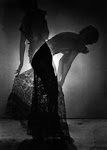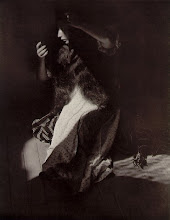Nico Muhly - Mothertongue (Bedroom Community, 2008)

NICO MUHLY
Mothertongue
Bedroom Community 2008
4/5
Listen: Mothertongue Pt. 1: Archive
Last year, Nico Muhly released one of my favourite albums of the year. While Speaks Volumes was good, it was still the sign of a promising young composer finding his feet and listening to Mothertongue, Muhly demonstrates that he has so much to offer.
Mothertongue is an album of storytelling, which isn't that strange in itself, music has always been used to spin a good yarn and here, Muhly has in some ways returned to the old-fashioned, man in a pub with a fiddle style of musical narration. The title piece is a four movement work, with elements of Stockhausen's Stimmung as voices overflow, overlap, create rhythm and texture. Mezzo-soprano singer, Abigail Fischer, shouts out numbers, place names, addresses that all stand as a testament to the modern of age of chaotic urban living. But Muhly isn't so much interested in pure intonation as Stockhausen was, but simply the beauty of the human voice and the textures it can create. The other obvious references are to 60s minimalist composers like Glass and Riley as Muhly consistently creates new musical patterns from overlapping melodies of voice, harpsichord, electronics etc.
Mulhy uses the same process in Wonders, a piece inspired by a 17th century English madrigal composer Thomas Weelkes. Here harpsichord, trombone and Helgi Hrafn Jónsson's vocals narrate the rather sinister tale of Weelkes, including a complaint that was sent to the bishop of Chichester regarding the composer's heavy drinking and recklessness. Strange and unusual, but The Devil Appear'd In the Shape of a Man has one of the most exciting interplays between a harpsichord and a trombone I've ever heard.



0 comments:
Post a Comment